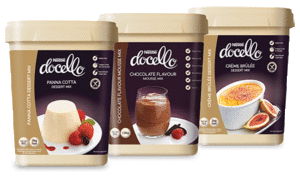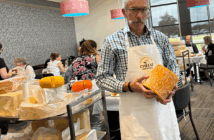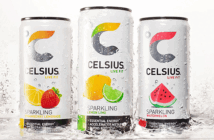
Coeliac disease now affects one in 100 New Zealanders, who require a strict lifelong gluten-free diet. For those living with food allergy or coeliac disease, accidentally consuming the wrong foods can have serious health complications.
Nestlé Professional has committed to making the management of gluten easier and also providing operational simplicity for chefs in foodservice – simplifying menus and kitchen workload, while providing uncompromising taste, quality and versatility – making it easy to meet dietary needs, stay on menu and on budget.
In 2017, Nestlé opened a new multi-million dollar facility in its South Auckland factory to increase production of its gluten-free range. The products are made to strict high standards and are endorsed by Coeliac New Zealand.
Foodservice operators can be confident that not only are Nestlé products made on a dedicated gluten-free facility, but that every batch of every product has been laboratory tested and found clear of gluten.
More than 50% of Nestlé’s culinary range has been converted to gluten-free. Top performing brands Maggi and Nestlé Docello now include a comprehensive range of gluten-free products, all designed to meet demanding and fast-paced foodservice environments. The extensive range also includes soups, boosters, sauces, jus, gravies, desserts and mousses.
In addition to simplifying menu planning and kitchen workload with a portfolio of gluten-free products, Nestlé Professional has created free, easy-to-follow resources to help improve allergen knowledge: Gluten & Other Allergens in Healthcare: Your Practical Guide.

Karen Kingham, Nestlé professional nutritionist, APD
Nestlé Professional research shows overwhelming demand for greater allergen knowledge, however one in four respondents said there was no training provided at the facility.
The research also revealed that best practices to prevent cross contamination are not being used consistently, and cleaning protocols before preparing allergen free meals are prepared, are not being adhered to. The free guide provides practical advice to ensure the correct handling procedures are being adopted.
For a copy of the Practical Guide and to view the full Nestlé Professional gluten-free range visit www.nestleprofessional.com.au/allergenfreeresources.




























































































